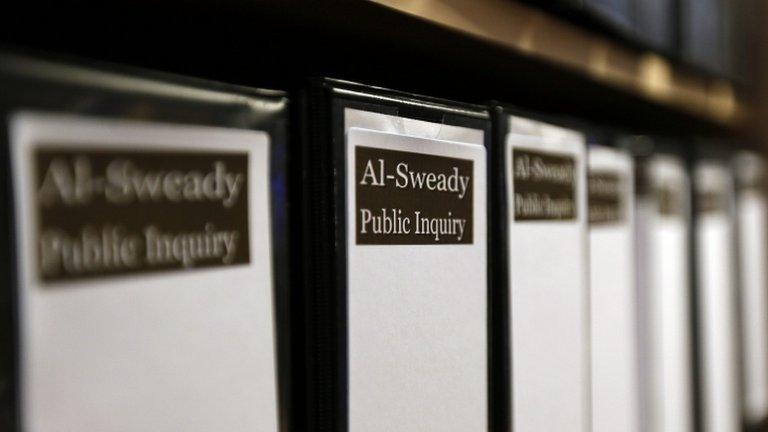Al-Sweady Inquiry: Legal battles after fighting ends
- Published
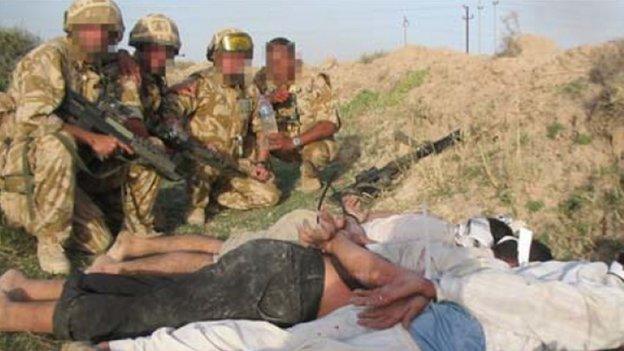
The inquiry found claims of murder and torture by British soldiers in Iraq were "deliberate lies"
There's anger, as much as relief and a sense of vindication, inside the Ministry of Defence and the Army at the end of this long public inquiry into allegations of murder and abuse by British soldiers in Iraq in 2004.
The anger is largely directed at the lawyers who pursued the case on behalf of Iraqi families whose evidence crumbled.
There's anger too that British soldiers who showed extraordinary bravery in battle have had their names and reputations dragged through the mud.
And then there's anger at the cost of this inquiry to the British taxpayer.
The MoD does not come out of this inquiry blame free.
It was forced on the MoD after High Court judges accused it of "lamentable" behaviour and "serious breaches" of duty of candour in a failure to disclose information about the allegations of murder and ill treatment by British troops after the so-called Battle of Danny Boy.
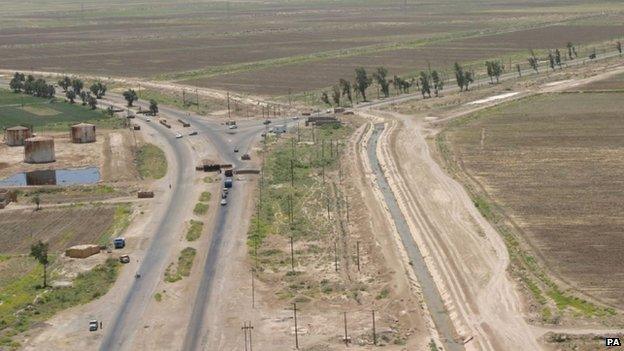
The Danny Boy checkpoint was the scene of a fierce battle when UK troops were ambushed by insurgents
The fact that three of the Iraqi detainees had made complaints to the Red Cross about their treatment after the battle only emerged as a result of the inquiry.
But it's the lawyers who pursued these allegations - law firms Public Interest Lawyers and Leigh Day - who now face the harshest criticism.
The MoD say it was a "shameful attempt to impugn the armed forces".
Even before this verdict, defence secretaries had spoken out against what they see as a "culture" of expensive, war-related litigation against the MoD.
Before he left for the Foreign Office, Philip Hammond stated taxpayers "are sick and tired of us funding these ambulance-chasing lawyers who are finding, often aggressively seeking out, foreign claimants".
His successor, Michael Fallon, used a speech earlier this month to vent his frustrations with the four-year Al-Sweady Inquiry.
He said it had exposed "barefaced lies" and a bill for the taxpayer of more than £30m.
Mr Fallon says there have already been three public inquiries, more than 200 judicial reviews or applications for them, and more than 300 personal injury claims from Iraqi or Afghan nationals.
He says the claims from the wars in Afghanistan and Iraq have been lodged on a "virtually industrial scale" and it has already cost the government £90m.
'Mortal threat'
The MoD now employs more than 300 lawyers and legal consultants at the cost of £36m a year.
Politicians and military commanders believe the damage is not just financial.
In a report called Fog of War, Tom Tugendhat, a former Lt Col in the British army, and US Army Lt Col Laura Croft, argue that recent judicial findings are already affecting a soldier's ability to fight.
They warn that a "legal creep" could pose a "mortal threat to the culture and ethos of the military which cannot easily be reversed".
In other words they feel that legal worries are impacting decisions on the battlefield, with soldiers concerned that their actions in combat could end up in court.
And it's not just about the treatment of detainees.
A landmark decision by the Supreme Court last year ruled the MoD had a duty of care to its own soldiers in combat.
In the past the military has largely been protected from prosecution under "combat immunity".
But recent judicial findings have extended common law claims of negligence and "duty of care" to the battlefield, opening the way for relatives of those soldiers killed in war to mount legal challenges against the MoD.

Sir Thayne Forbes said there had been no deliberate ill-treatment of detainees
The publication of the Al-Sweady Inquiry will undoubtedly fuel the debate about the way lawyers pursue claims against the military - in this instance the actions of Public Interest Lawyers and Leigh Day.
The inquiry chairman, Sir Thayne Forbes, said the Iraqi detainees who had alleged abuse and torture had given evidence that was "unprincipled in the extreme" and "wholly without regard to the truth".
The inquiry did uncover some ill treatment, including sleep deprivation, strip searches and blindfolding.
It also describes an instance of "ill treatment" in which an interrogator banged a tent peg on a table and walked around a blindfolded detainee while blowing of the back of his neck.
But all those detained were known to have been armed insurgents at the time.
The head of the Army, Gen Sir Nick Carter, has said it is "right that soldiers should be held to account when they fail to uphold" the Army's high standards.
But how realistic is it to expect soldiers to treat the enemy with kid gloves in the immediate aftermath of a fierce battle?
This inquiry is unlikely to draw a line under the Iraq war or bring an end to allegations of mistreatment by British soldiers.
The MoD has set up the Iraq Historic Allegations Team - IHAT - to examine claims of abuse and unlawful killing.
It is currently investigating 55 allegations of unlawful death and 197 allegations of mistreatment.
Public Interest Lawyers, in conjunction with the European Centre for Constitutional and Human Rights, has also handed over a dossier alleging "systemic abuse" of Iraqis by British troops to the International Criminal Court.
But so far one British soldier has been convicted of abuse during the Iraq war, following the death of hotel worker Baha Moussa while in British custody.
- Published17 December 2014
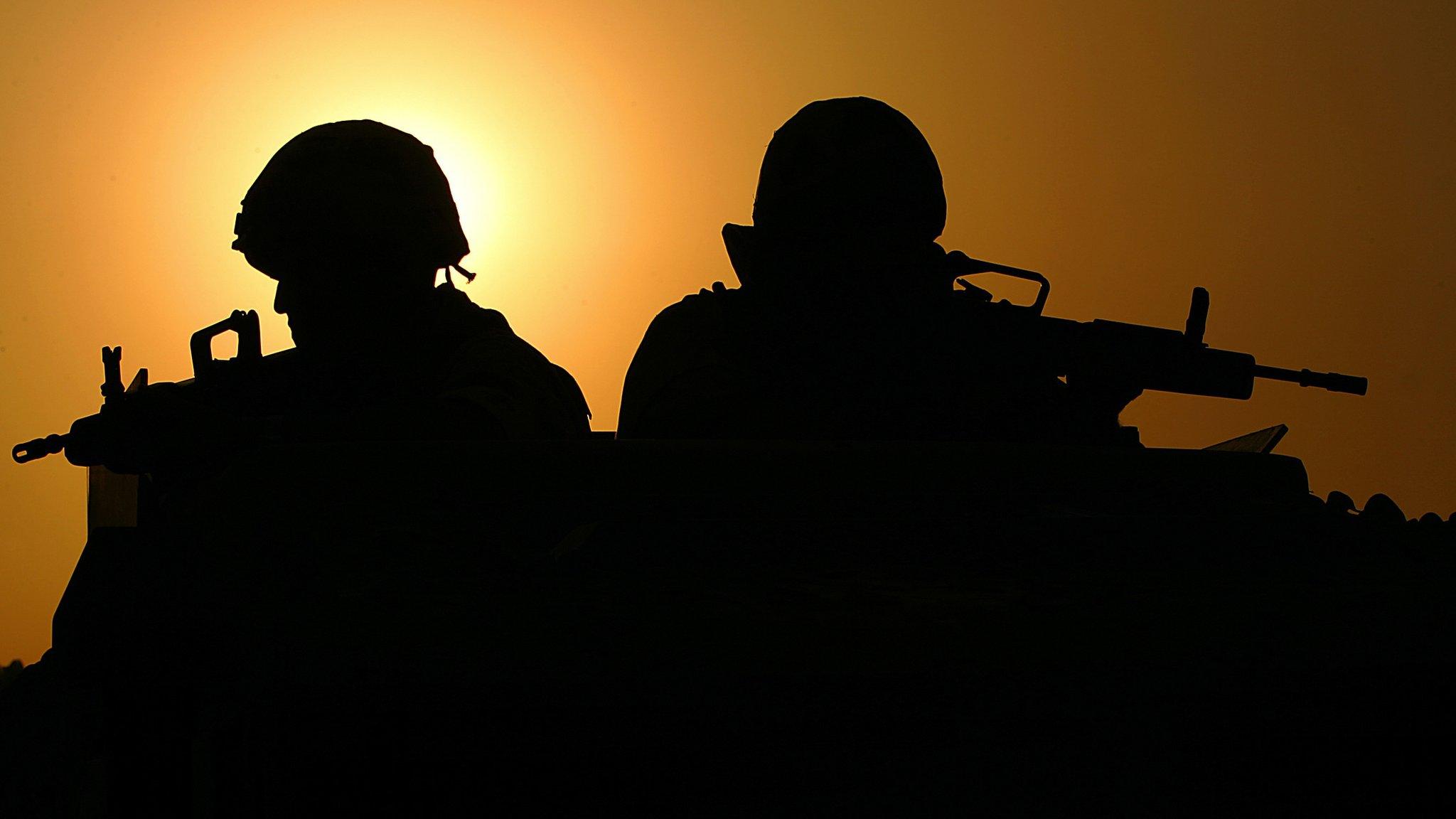
- Published16 April 2014
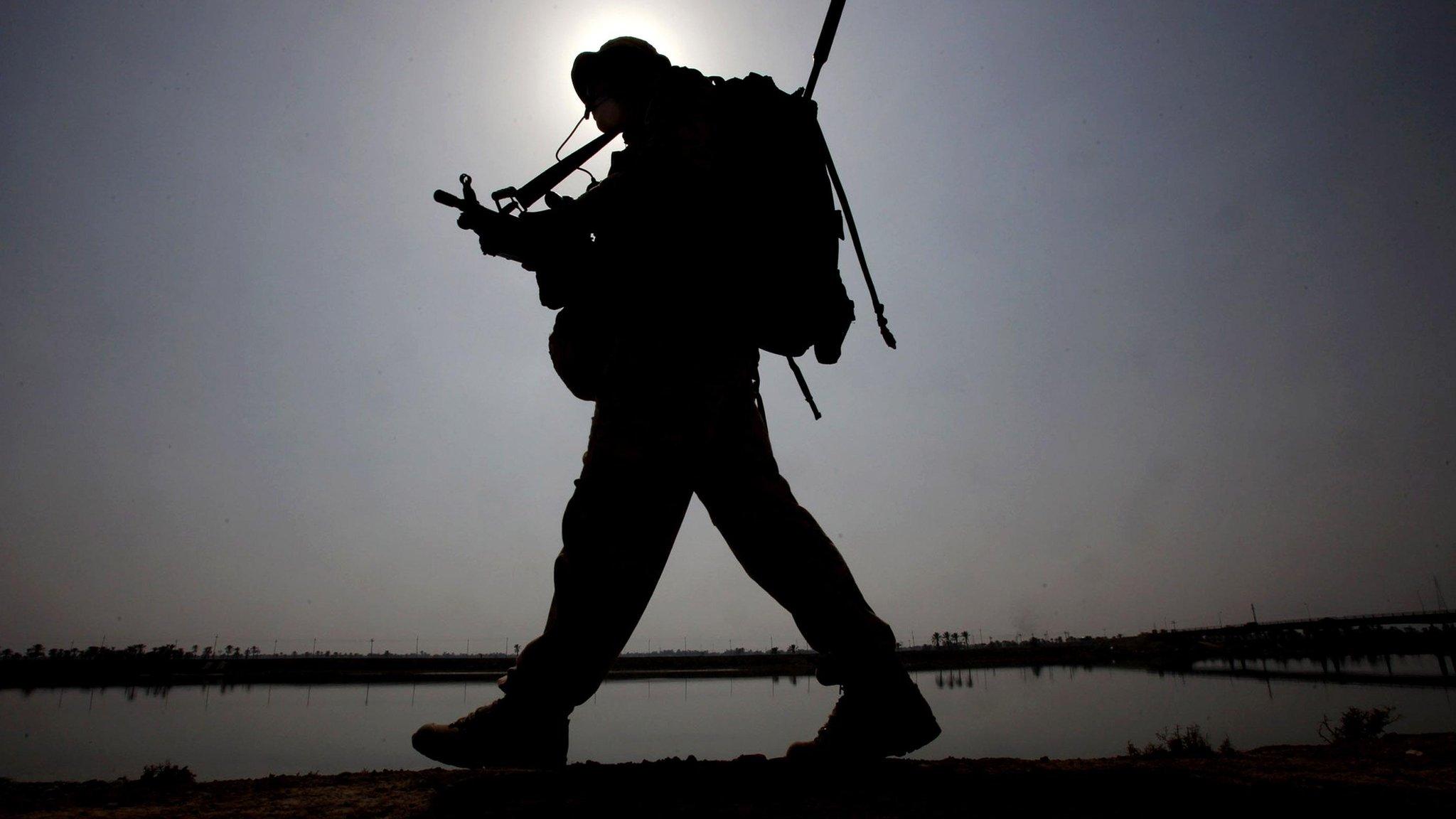
- Published20 March 2014

- Published17 December 2014
